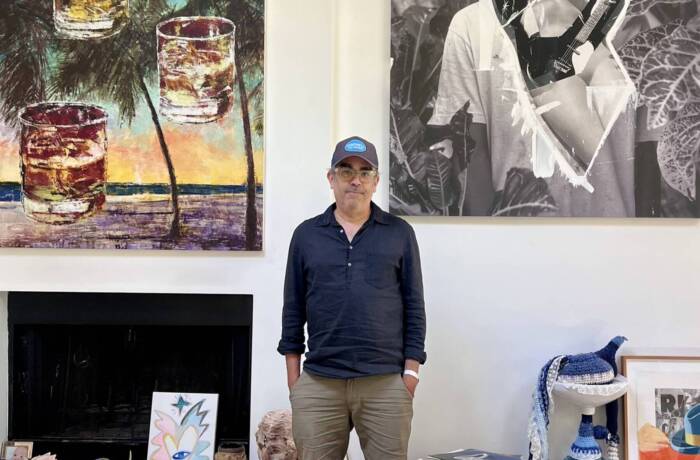
Simon Hodges photographed by Matt Porteous
Last month, life coach Simon Hodges discussed why healthy dynamics often deteriorate and offered practical tools to help break out of old destructive patterns of behaviour. In his last column dealing with family dynamics, Simon provides some practical and powerful tips to improve family relationships
Love is always the answer, the answer is always love
This may sound obvious, but I make no apology for saying it: if you want to build more loving relationships, you have to make being loving your primary focus. This is not just a ‘soft and fluffy’ act. Far from it, it is actually the most challenging and most rewarding thing you will ever do.
Follow LUX on Instagram: luxthemagazine
The most loving relationships are those where boundaries exist – put simply this involves being honest with yourself about what is ‘ok’ and what is ‘not ok’ in your relationship with others and making this clear to those around you. Once these limits have been set, it is then a case of holding each other accountable to these boundaries (with consequences for overstepping them). Though it may seem counter-intuitive, this requires putting yourself first, having the moral courage to say what you feel and to say it proactively and pre-emptively before any problems occur; take a moment to reflect on this point and be honest with yourself – do you routinely avoid speaking your truth because it feels awkward to do so? And then ask yourself, what are the consequences of failing to do this in your most important relationships?
The other major component of a loving relationships is trust, which can only be built over time. Trust is complex, nuanced and layered. At one end of the spectrum is an assumption of trust based on a contract; at the other end, there is unconditional and ‘pure’ trust, where no matter what, you know that other person will be there for you. Above all, trust is earned by being reliable and consistent in your actions (actions speak louder than words) which meet or exceed someone else’s expectations. And if you really want to build long-term trust and have a life of fulfilment, live a life of service. When we step out of making everything in our lives about ourselves and we seek to serve others, we create a virtuous ‘win-win’ circle.

Photograph by Matt Porteous
Dynamic communication is key
We often get lazy in our closest relationships and forget some of the golden rules of great communication. One of the biggest mistakes we make is assuming that we truly understand what the other person is saying without checking. The definition of effective communication is making sure your message is received and understood the way you intended it to be, but when was the last time you checked to see if that was the case?
Here are two simple techniques to do so:
-
- Repeat in your own words what you think you just heard the other person communicate to you.
- Where you are more unsure if you understood correctly, ask the other person to clarify for you what you just heard.
In using these techniques, you are immediately establishing deeper connection and rapport because you are effectively communicating (at an emotional level) that you care about the other person. You want to truly understand their perspective and as a result they feel heard, respected and valued.
Read more: Simon Hodges discusses how to break free from destructive behaviour
One final practical tip, which is always a game changer in family dynamics and speaks to the point above about serving others, is to learn to listen more objectively and better still, with practice, to listen intuitively. Objective listening is all about putting yourself in the other person’s shoes, making a real effort to understand what the other person needs and why. This requires us to step out of our desire to win and control every situation, and to genuinely want to understand the other person’s needs.
Intuitive listening is an art, and it is appreciated by everyone. With practice and real presence, you’ll be able to instinctively pick up insights and feelings around what is emotionally driving the other person’s behaviour. Often you will find out the most important information by tuning into what they aren’t saying: by observing their body language, listening to the tone and intonation of their voice and paying attention to the energy behind all of this. When you can really hear someone, when you value their thoughts, ideas and opinions, your relationship with them will immediately start to transform.
Find out more about Simon Hodges’ work: simonhodges.com; @simonhodgescoaching








